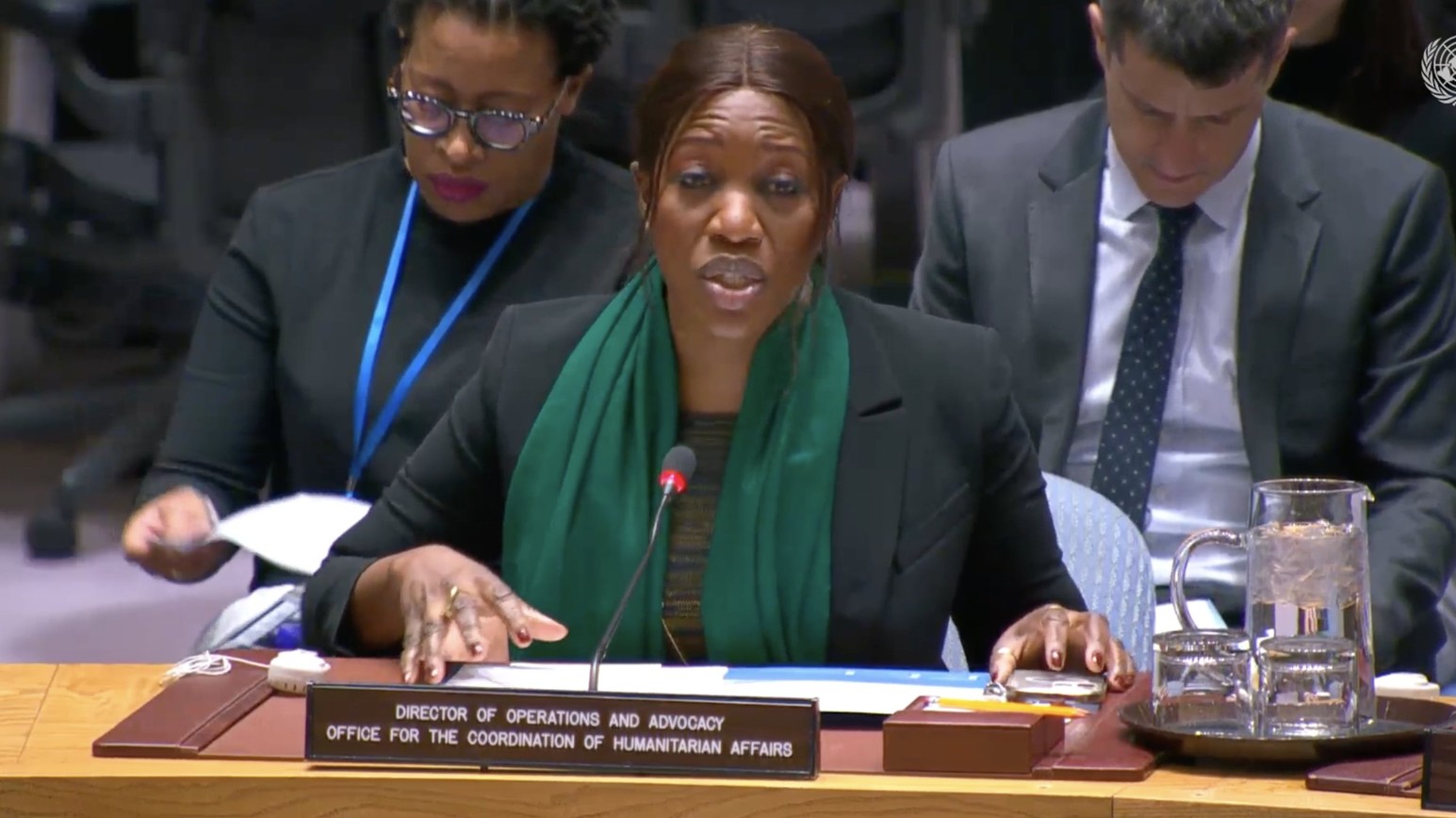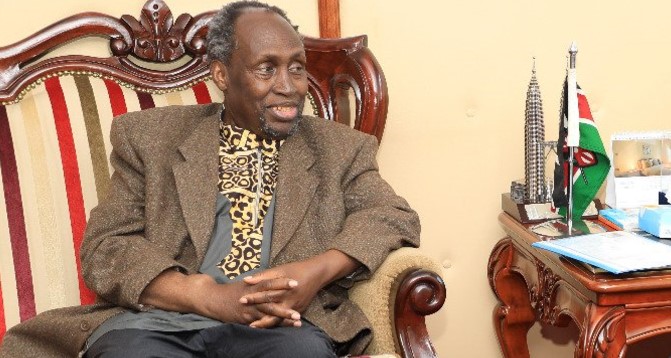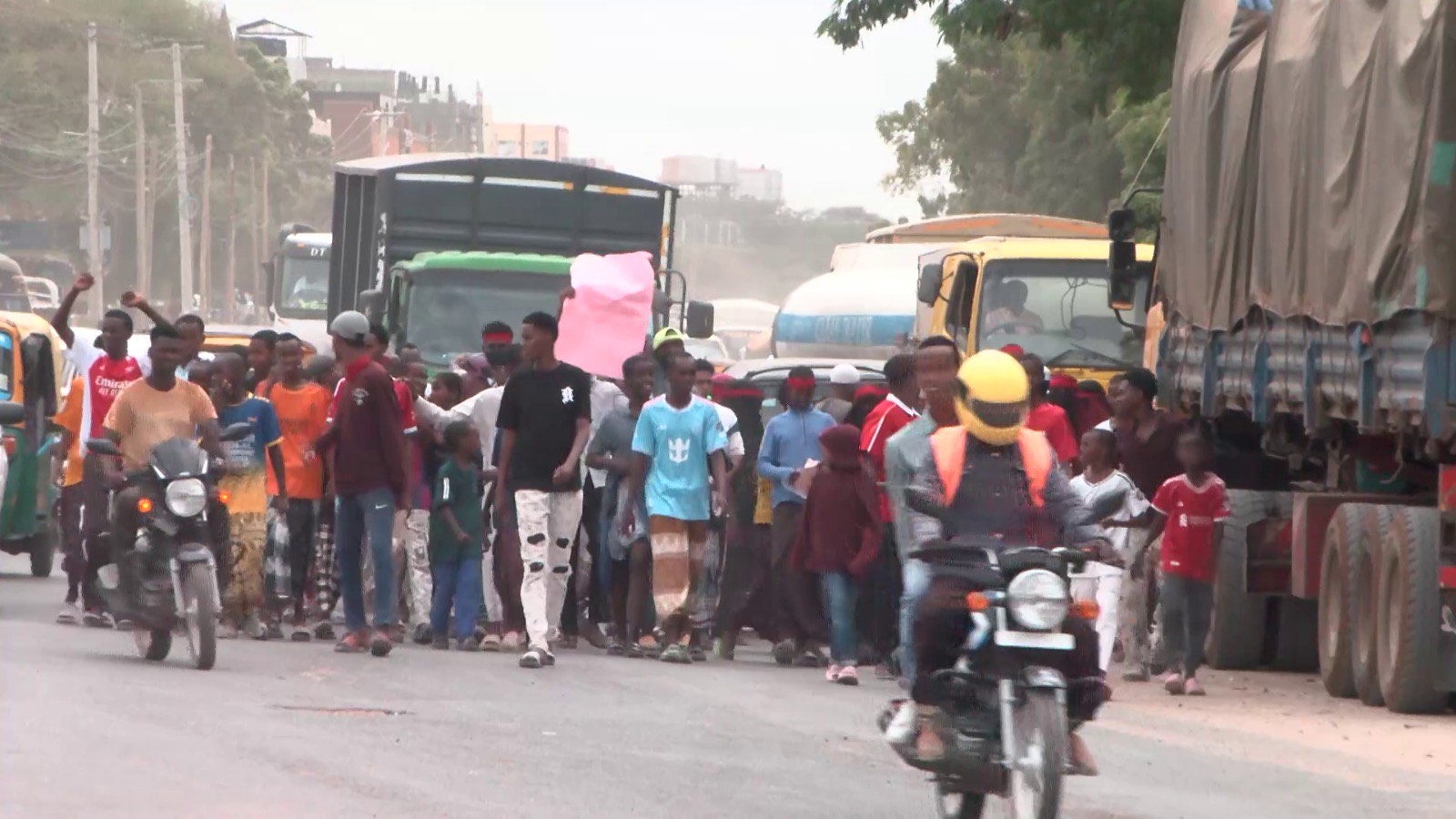Nairobi Woman Rep Passaris faces backlash from city traders over anti-protest law proposal

The small-scale traders and hawkers in Nairobi said they oppose Passaris' proposals, arguing that they too may need to protest issues affecting them, and the proposed law could restrict their ability to do so.
Small-scale traders in Nairobi have voiced their opposition to a proposed Bill by Nairobi Woman Representative Esther Passaris that seeks to impose new restrictions on public demonstrations.
Speaking to The Eastleigh Voice, the small-scale traders and hawkers in Nairobi said they oppose Passaris' proposals, arguing that they too may need to protest issues affecting them, and the proposed law could restrict their ability to do so.
More To Read
- Inside Mathare’s fight for justice: How youth are taking on police brutality and reclaiming dignity
- Treasury reports fastest tax growth in two years amid July protests
- US report raises alarm over deterioration of human rights in Kenya
- Five Kenyans sue IG Douglas Kanja, top security chiefs over protest violence inaction
- Ruto announces 120-day compensation framework for protest victims
- MCA moves to enforce 2018 Nairobi law banning posters on poles, walls
Eric Okoth, who represents the Nairobi Central Business District Shoe Shiners Association, said they're opposed to Passaris' proposals since they're also affected by several matters that require protests for them to be heard.
" We're getting harassed every day in the streets by police and city council inspectorate officials. We sometimes need to protest against such matters and others. Imagine if we were also to be banned from protesting in the city, yet we're not interested in politics," said Okoth.
Members of Parliament have expressed their eagerness to pass a law that would protect themselves and key institutions from future public protests.
In a proposed amendment to the Public Order Act (Cap 56), Passaris is seeking to bar demonstrators from assembling within 100 meters of protected areas, including Parliament.
Demonstration zones
Her proposal seeks to establish clearly demarcated assembly and demonstration zones in which public meetings and processions may take place, in line with Article 37 of the Constitution.
Passaris is also pushing for amendments to Section 2 of the Public Order Act to redefine the terms "public meeting" and "public procession." Additionally, she proposes including definitions for "capital city," "city," "urban area," and "assembly and demonstration zone."
"The proposed Section 5B prohibits holding a public meeting or procession within a 100-meter radius of the precincts of Parliament, as described under the Parliamentary Powers and Privileges Act, protected areas under the Protected Areas Act, and buildings housing courtrooms," Passaris said.
Sh100,000 fine
Violation of this provision would be considered an offence, punishable by a fine not exceeding Sh100,000, imprisonment for up to three months, or both.
Kelvin Kamau, who sells second-hand books near the Nation Centre in Kimathi Street, said the proposals aren't realistic, and could be political.
"We have been here in town every day watching and following how the protests are happening. We know how it gets infiltrated by criminals who, in our estimation, look hired," said Kamau.
According to him, the government should find ways of protecting protesters and non-protesters from criminals hired by politicians to cause chaos and confusion.
"Instead of restricting the freedoms and rights of those expressing themselves freely. They should ensure that goons do not infiltrate peaceful protests," added Kamau.
Kamau is among the tens of traders who said they've been frustrated by movements formed to protect their welfare in the city.
Appearing before the National Assembly's Security and Administration Committee, Passaris defended her proposal, stating it is not intended to infringe on freedom of expression but to ensure demonstrations are conducted in an orderly manner.
"Order is not the enemy of democracy, but its foundation. I urge the committee to support this bill—not for the government, not for Parliament, but for Kenya," she said.
"When I thought about this law, my intention was to protect the sanctity of the institutions that hold us together," she added.
However, the proposal sparked division within the committee, with some members expressing concern over its impact on civil liberties.
Right to be heard
Kisumu County Woman Representative Rosa Buyu questioned the potential impact on the right to be heard, noting that protests often occur when citizens feel unheard and need to publicly express discontent.
"My issue is, if we designate protest zones in places with no people—remote areas—and tell demonstrators to go there and shout themselves hoarse, are we not undermining their freedom of expression?" she asked.
Nyakach MP Aduma Awuor spoke out against passing laws in reaction to the recent Gen Z-led protests, urging his colleagues to address the root causes of public dissatisfaction instead.
"For peace to prevail, justice must be seen to be done. We need to approach this matter soberly. Where there is injustice, people will naturally feel contempt," he said.
"Let us not act out of emotion and pass laws that can't be implemented. If you say no one should come near Parliament and they show up in their thousands, what will you do—shoot them all?" he posed.
The Bill is likely to meet further resistance, with human rights activists poised to challenge it.
Human rights activist Odhiambo Ojiro described the proposal as backwards and something that cannot go unchallenged in court.
"We will not allow it to go unchallenged. If allowed to pass through, Kenya shall have gone back to the dark era of single-party rule," said Odhiambo.
Top Stories Today















































